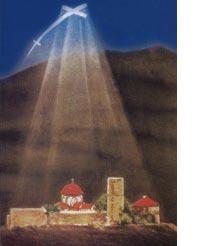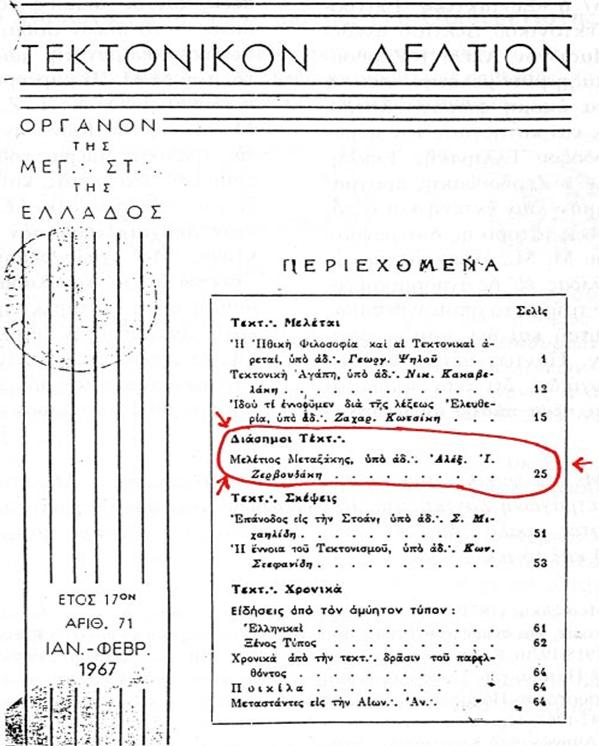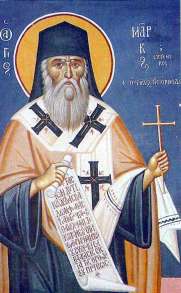“A Painful Remembrance”
1924‐2004: The Eightieth Anniversary of the Calendar Reform
«Тягостное воспоминание»
1924-2004, восьмидесятилетний срок спустя введения
Календарной реформы

Œcumenical Patriarch Meletios (Metaxakis) (1871-1935)*
Вселенский Патриарх Мелетий (Метаксакис)
(1871-1935)*
а) масон, б) модернист, в) экуменист
(англ.яз.)
Часть 1
“He opened wide the gates to every innovation,” “satisfying the sinful wishes and self-serving desires of heterodox churches and secret societies”
In a previous issue,¹we reprinted an important article, in which the blessed Confes- sor-Hierarch Chrysostomos (Kavourides), former Metropolitan of Florina, observes that, “the inspirers and pioneers” of the reform of the Church Calendar, Patriarch Meletios (Metaxakis) of Constan-tinople (1871-1935) and Archbishop Chrysostomos (Papadopoulos) of Athens, “these two Luthers of the Orthodox Church,” “being devoid, unfortunately, of a deeply Orthodox spirit, knowingly or unknowingly became tools of foreign aspirations and designs, the aim of which was to sunder the unity of the Orthodox Churches.”²
Additionally, there are, in the same article and in the commentary
on the text, detailed references to the self-proclaimed “Pan-Orthodox
Congress” of 1923, in Constantinople (May 10-June 8), and the issues
pertaining thereto.³
Now, certain of the Faithful may have considered these charac-
terizations harsh and excessive. Hence, the following questions arise,
He opened wide the gates to every innovation,”
“satisfying the sinful wishes and self-serving desires of heterodox churches and secret societies”
Он широко отворил двери для всяких нововведений,
«удовлетворяя греховным пожеланиям и самолюбивым требованиям инославных церквей и тайным обществам»
In a previous issue of «'Ορθόδοξος Ένστασις καί Μαρτυρία»we reprinted an important article, in which the blessed Confessor-Hierarch Chrysostomos (Kavourides), former Metropolitan of Florina, observes that, “the inspirers and pioneers” of the reform of the Church Calendar, Patriarch Meletios (Metaxakis) of Constantinople (1871-1935) and Archbishop Chrysostomos (Papadopoulos) of Athens, “these two Luthers of the Orthodox Church,” “being devoid, unfortunately, of a deeply Orthodox spirit, knowingly or unknowingly became tools of foreign aspirations and designs, the aim of which was to sunder the unity of the Orthodox Churches.”2Additionally, there are, in the same article and in the commentary on the text, detailed references to the self-proclaimed “Pan-Orthodox Congress” of 1923, in Constantinople (May 10-June 8), and the issues pertaining thereto.3 Now, certain of the Faithful may have considered these characterizations harsh and excessive. Hence, the following questions arise, which require a clear and properly documented response, lest we give the impression of being artful slanderers:
• Was Patriarch Meletios (Metaxakis) a tool “of foreign aspirations and designs”?
• Was the calendar change carried out in good faith, and was it unrelated to the spirit of innovation and ecumenism that motivated Patriarch Meletios?
• Was Patriarch Meletios a great precursor of ecumenism, which is both destructive to, and deadly for, the Church?
Unfortunately, the historical evidence is conclusive and over- whelming, since it gives affirmative answers to these three inexorable questions. For the present, we will cite three witnesses only, in due course returning to them; and in the future, God willing, we will also publish a feature article on Archbishop Chrysostomos of Athens.
* * *
I
Patriarch Meletios Metaxakis⁴
as a Tool of “Foreign Aspirations and Designs”
Мелетий Метаксакис как орудие «иностранных устремлений и замыслов»
In 1967, the editorial committee of the Τεκτονικὀν Δελτίον[The Masonic Bulletin] assigned the Freemason Alexander J. Zervoudakis the task of compiling a study “that would sketch the life of yet another brilliant star, which shines upon and illumines the firmament of the ‘Greek Orthodox Church.’”⁵
Zervoudakis in fact compiled an extremely detailed biography of Patriarch Meletios, which is very noteworthy from an historical point of view and which runs to twenty-five pages. The small section that we have reproduced certainly speaks for itself and requires no commentary from us.
Still, it is worth observing at the outset that what
Zervoudakis writes is beyond contestation—and this for a number of reasons, but most importantly because he had personal knowledge of Meletios Metaxakis in his capacity as a Mason. Zervoudakis met Meletios in Constantinople, during the tragic days of 1922, as a member of a three-man commission, and conversed with him. “As I departed,” Zervoudakis notes, “I greeted him as one Mason greets another Mason. He smiled and said to me: ‘I see that you understand me.’ This recollection inspired me to accept and carry out the request of the editorial committee of the Bulletin, by publishing a portrait of our brother.”⁶ He concludes his article, many pages long, as follows:
With the spiritual virtues with which Meletios was endowed, with his sound grasp of logic, and with his independent mind, free from pettiness, it is not surprising that he was ready to receive the light of Freemasonry.
The first time that he passed through Constantinople (1906), he became acquainted with the Masons. He met with them, impressing them with his critical and straightforward spirit and with his knowledge and opinions on various encyclopedic, general, ecclesiastical, and religious issues. They were interested in learning what kind of man he was and what he had done up to that point. What they learned prompted them to propose to him, in an adroit manner, during his second stay in Constantinople, the idea of becoming a Mason. It appears that, in this circumstance, the Masons, members of the Greek Political Association of Constantinople, with which Meletios was consulting at the time about the burning question of the Arab-speaking Orthodox (1908), acted in precisely such a way that the intrepid and inquisitive spirit of Meletios—who had hitherto heard much about the Masons in Cyprus and elsewhere—prompted him to ask his colleagues, whom he respected, to give him information about Freemasonry, and, after he had listened to them, to decide, with his well-known impetuosity and resolve, to follow the example of many English and other foreign bishops and seek to learn
about, and be initiated into, the mysteries hidden within Freemasonry.
These Masons then brought him to the ‘Harmony’ Lodge, No. 44,⁷ in Constantinople, which had gathered in its ranks the cream of Greek society in that city—all the best that the Greek population in Constantinople had at its disposal in terms of literature, science, and power—and which, in one way or another, by virtue of its members, who belonged to every social organization, ethnic or otherwise, exerted a substantial influence on Greek life. They asked the then-Grand Master of Greece for permission to initiate Meletios, and when this was granted, he received the light of Freemasonry, at the beginning of 1909. He remained in Constantinople for one more year and fervently studied Masonic teaching, which allowed him to give all of his deeds and words a truly Masonic stamp, as we saw in our brief account of his activity. In every instance, righteousness and the true Masonic virtues, one might say, naturally and spontaneously guided him in what he should say and how he should act. A clear sign of the influence that Freemasonry has on the formation of a man’s character is when he is spiritually prepared to accept its teachings, when, that is, he is a born Mason—as Meletios was.
After his initiation, Brother Meletios kept up his Masonic activities wherever he went during his tumultuous life, as circumstances and surroundings permitted it.⁸

Issue No. 71 (January-February 1967) of the periodical TektonikÚn Delt¤on, the “Journal of the Grand Lodge of Greece,” in which the article by Alexander J. Zervoudakis, “Diãshmoi Tekt.: Mel°tiow Metajãkhw” [“Famous Freemasons: Meletios Metaxa- kis”], was published (pp. 25-50).
When I, the author, had the honor of seeing the light of Freemasonry in my turn at the aforementioned ‘Harmony’ Lodge, I remember with what pride and joy all of the brothers spoke about Meletios’ initiation, when he was elected into our lodge. And I shall always remember the explanation that my esteemed Brother, Demetrios Xanthos, gave when I asked why it was necessary for us brothers to keep this initiation a secret; he guided me to a correct understanding of this and to a furthering of my true inner initiation.
Few are those who, like Brother Meletios, accept Freemasonry and make it the experience of their life. It was a genuine loss for us that he was so quickly called from the Grand Harmony Masonic Lodge into eternal repose, before completing the tasks with which he crowned his passing from our world.⁹

